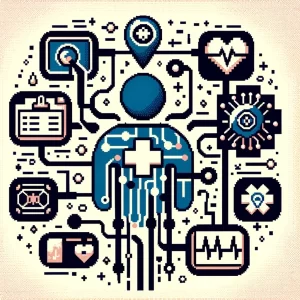
Soccer and Global Health?
Imagine if sharing critical health data was as straightforward and rewarding as trading soccer players. What if every time a country contributed valuable information about a disease outbreak, it was compensated in a way that not only acknowledged its contribution but also incentivized continued sharing? This intriguing idea is explored in a recent scientific article, which suggests adapting FIFA’s benefit-sharing model to improve global health data sharing. This concept, if implemented, could transform the way we handle pandemics and other health crises.
The Problem with Pandemic Data Sharing
In global health, sharing data about disease outbreaks, including biospecimens, is vital for effective pandemic prevention, preparedness, and response (PPR). However, countries, especially those with fewer resources, often hesitate to share this data. Why? Because they rarely see the benefits of their contributions. Scientists and institutions in low—and middle-income countries (LMICs) frequently provide crucial data without receiving adequate compensation. This reluctance to share data can slow down responses to health threats, putting everyone at risk.
The current legal frameworks, like the International Health Regulations (IHR) and the Pandemic Influenza Preparedness (PIP) Framework, have not been very effective in addressing these issues. They lack enforcement mechanisms and incentives for countries to report disease outbreaks promptly. The COVID-19 pandemic highlighted these challenges, as some countries were hesitant to share data due to fears of travel bans or other retaliatory measures.
A Fresh Approach from the World of Soccer
Enter FIFA, the global governing body of soccer, known for its innovative benefit-sharing model. In soccer, clubs that train young players are compensated when these players turn professional or are transferred to other teams. This system includes training compensation and solidarity payments, ensuring that even small local clubs receive financial rewards for their contributions.
The idea is to apply a similar model to global health data sharing. By adapting FIFA’s mechanisms, we could create a fair and effective way to incentivize the sharing of crucial health data. Let’s break down how this could work.
Training Compensation and Solidarity Payments
FIFA’s model involves two main mechanisms: training compensation and solidarity payments. Training compensation ensures clubs are reimbursed for the costs of developing young players. A fee is paid to the training clubs when a player signs their first professional contract and with each subsequent transfer until the player turns 23. Solidarity payments allocate a portion of the transfer fee to all clubs involved in a player’s training whenever the player is transferred during their career.
In global health, these concepts could translate to compensating countries that share valuable health data. For instance, when a country provides critical data about a new virus, it could receive financial compensation. This payment could come not only when the data is first shared but also whenever it is used in research or public health initiatives, similar to how solidarity payments work in soccer.
Creating a Centralized Clearing House
A key element of FIFA’s model is the FIFA Clearing House (FCH), which centralizes payment processing and ensures financial transparency. For global health, a similar centralized entity could manage the sharing of pandemic-relevant data. This clearing house would automate benefit tracking and distribution, ensuring that all contributors are fairly compensated.
This entity could also maintain a web-based platform, similar to FIFA’s Transfer Matching System (TMS), for accessing and sharing data. Such a system would track data providers and users, promoting transparency and accountability. It could also shift the focus from data sharing to data access, allowing multiple entities to benefit from the same data without it needing to be physically transferred.
Addressing Challenges and Adaptations
While the FIFA model offers a promising framework, it cannot be applied directly to global health without modifications. For one, securing broad international buy-in would be crucial. Unlike soccer, where FIFA has hegemonic control, global health lacks a single governing body with similar authority. Developing a system that is adaptable to different pandemic periods and countries’ varying needs and capacities is essential.
Moreover, defining what constitutes relevant data and ensuring fair distribution of both tangible and intangible benefits are critical. For example, preventing morbidity and mortality through early data sharing is an intangible benefit that must be recognized.
Join the Conversation
What do you think about adapting FIFA’s benefit-sharing model for global health? Have you ever faced challenges with sharing or accessing health data in your work or community? Share your experiences and thoughts in the comments below or on social media!
How do you think a centralized clearing house for health data could impact global health equity? Do you see any potential challenges or benefits that weren’t discussed here? Join the conversation and let us know!
Conclusion
Adapting FIFA’s benefit-sharing model to global health could be a game-changer, addressing long-standing challenges in data sharing for pandemic preparedness and response. While there are hurdles to overcome, such as ensuring broad international buy-in and adapting the model to the dynamic nature of pandemics, the potential benefits are significant. A fairer and more effective system for distributing benefits from shared public health data could lead to quicker, more coordinated responses to health threats, ultimately saving lives and improving global health security.
Empower Your Network – Subscribe and Share!
Unlock key insights with ‘This Week in Public Health.’ Subscribe for free and share to drive change as part of a dedicated community. If you liked this blog, please share it! Your referrals help This Week in Public Health reach new readers.



